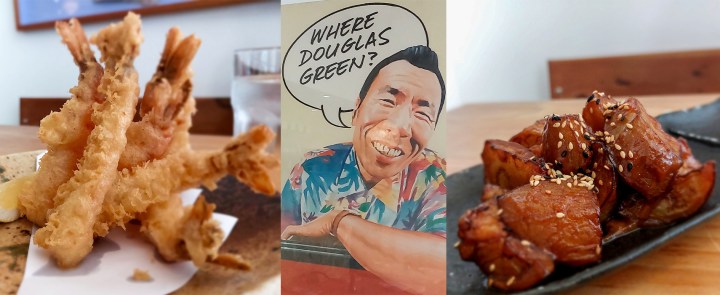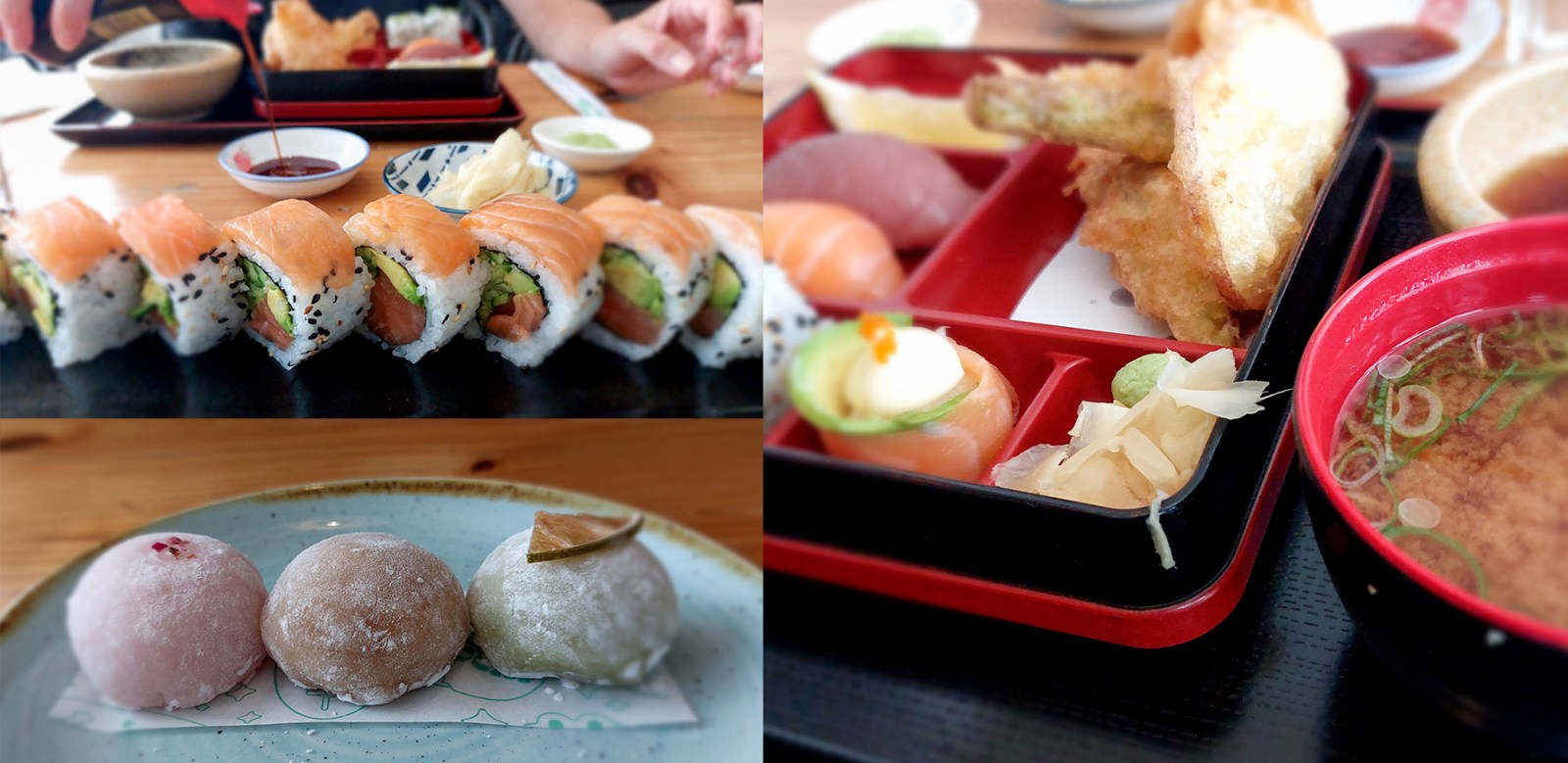NO-SHOWS
Restaurants like Obi are dealing decisively with those who book but don’t pitch

Obi, which is serving some of Cape Town’s best sushi in Long Street, is one of a growing number of eateries that are incentivising guests to pitch up. But you are required to book through Dineplan.
Cape Town’s party central, Long Street, has certainly seen its ups and downs. Once the most fashionable part of town, Long Street has seen its fair share of quirky eateries, bookshops, vinyl stores, clubs, pubs and boutiques.
The Long Street strip also hosted the infamous Purple Turtle — where you could grab a beer, a game of pool, get tattooed and pick a poison, while listening to some of the grungiest live entertainment in town — the Pan African Market, which attracted artisans, artists and tourists and other creatives; alongside backpackers, mosques, churches and the Long Street Baths, which was supposed to have reopened this month after maintenance work but still not there yet.
Then, of course, there is Greenmarket Square, just off Long, which was for a long time the coolest market in the country. Sadly, no more.
Some of these attractions have endured, some simply faded, while others have long since moved on, for better or worse.
Parts of the strip have also seen better days: certainly, the top end of Long Street is probably safest (and more fun) during the daytime, before the party crowd hits the clubs, while closer to the V&A Waterfront, Long Street seems to attract a more “sober” and diverse mix of both businesses and clientele, and great security for extra peace of mind.
The last time I hit Long Street, it was at the “wrong” end. Date night turned into an irritation of heavy traffic and being hassled: when we finally found parking and set off on foot, we were swatting away drug dealers every few metres. After that, we simply ignored Long, which is a pity because there are some gems in the City Bowl and they’re not all on Bree.
It’s on Long’s business end, where you’ll find Obi, a Japanese restaurant set up in 2016 on 14 Long Street. Owned by Ben Bettendorf and sushi legend Hatsushiro Muraoka, or “Papa San”, Obi (which is named for the decorative sash that binds a kimono or martial arts uniforms) specialises in great-tasting, clean and super fresh sushi, ramen and tempura.
Muraoka is an “original” — he was one of the first chefs to open a Japanese restaurant in Cape Town and has owned three others: Tokyo, Minato and Takumi, where Bettendorf worked under him for two years.
Papa San and his protégé have certainly fashioned a destination restaurant in Obi: it’s intimate, airy, and decorated with a mix of the quirky and traditional. There are cheeky “Where’s Douglas Green?” prints (that was a killer ad campaign for the winery) and kimono jackets on the walls, and a samurai figurine greets diners at the entrance. Large wall screens section off parts of the restaurant. It’s a fun, yet intimate space that draws a devoted lunch and dinner crowd.
For starters, the crispy prawn tempura is a hit (four large prawns coated in a perfectly crunchy tempura batter, served with a dipping sauce) but I’m a sucker for a simple miso soup (spring onions, tofu and green wakame seaweed).
One of the most popular starter options is the “nasu miso” — fried aubergine with toasted sesame seeds and sticky miso dressing — but be warned: it’s rich and you might want to share it with others at the table.

Salmon California rolls, top left, mochi mochi, below left, and the bento box, right. (Photos: Georgina Crouth | collage by Tony Jackman)
There’s a ramen of the day and a variety of other noodle dishes, although the biggest focus is on sushi — nigiri, handrolls, maki, inside-out rolls, sashimi and specialities (including chirashizushi, a poke-style “scattered sushi”) always prepared freshly, and even more important, served at the ideal temperature, which means at around 20°C, and at a fridge temperature.
One of the biggest drawcards at lunchtime is the bento box: It’s good value too, with one salmon nigiri, one tuna nigiri, a salmon rose, four-piece prawn California roll and four pieces of vegetable tempura, served with a tentsuyu dipping sauce, and miso soup for R135.
Dinner time offers two specials — a kaiseki multi-course dinner for two (miso soup, salmon and tuna nigiri, salmon roses, prawn California roll and vegetable tempura, served with tentsuyu dipping sauce) or a “Best 4×4 by far”, which is a four-piece rainbow roll and four-piece “sweet kiss” roll and a bottle of Franschhoek Cellars sauvignon blanc.
Portions are probably too generous, although the sushi fiend at my table simply couldn’t get enough.
Dessert isn’t a big focus — they only have two items on the menu, a daily selection of Mochi Mochi truffles (salted caramel, margarita and Turkish delight) and panna cotta, which is an odd inclusion since it’s a traditional Italian dessert.
Preventing no-shows
If you’re wondering where to find some of the city’s best sushi, look no further than Obi but you need to book through Dineplan.
Obi has a strict booking policy — diners can only book via Dineplan — and a discretionary 10% service charge is automatically charged to all tables (a practise which is becoming increasinly common in the industry). They had trialled a system that required a R100 deposit per guest to secure the reservation during season, but that’s now been scrapped.
Deposits are increasingly vital because if you don’t protect yourself as a restaurateur, you’ll sink. When reservations don’t arrive as planned, the restaurant not only loses out on that booking but also on seating another potential table. That’s a loss for the restaurant and certainly staff, who are heavily reliant on their tips.
Imagine if your 50-seater restaurant is dependent on half its business from foot traffic, the other half from reservations. At an average spend of R400 (conservatively), if about 10% of reservations are no-shows, you could be down R2,000 daily. Taken over a five-day week, you don’t need a maths brain to see how that could add up.
Cancellations and no-shows are incredibly damaging to a restaurant’s revenue, which has become even more critical in the post-Covid years as the hospitality industry fights for survival. This is against a background of operating on thin margins, rolling blackouts, energy costs, inflation and the cost-of-living crisis, which are all eating into the industry.
Bettendorf told me that implementing the Dineplan reservation and payment system has been a game-changer because they initially faced problems with overbooking and lost sales. The new system is user-friendly and easy to use, giving restaurants complete control over table availability and time slots.
“At the beginning, no-shows were a big problem, especially with the bigger bookings or if they showed up with far less people than expected. We’re a tiny restaurant and if we booked a table and it was a no-show, that meant it was unavailable for other guests for the whole evening, so we’d lose out on business.”
With a deposit system in place, there’s a negative incentive to not showing up.
Dineplan just works for restaurants, he said. “You’ve got complete control over how people can book, which time slots are available, and prevent overbooking. It’s quite limitless, actually.” DM





 Become an Insider
Become an Insider
I’m not sure if I agree with the idea of paying a deposit before pitching up… Imagine if a lawyer or a mechanic were to do that. Everybody would laugh them off (and it’s unprofessional for lawyers to take deposits before consulting with a client and signing a fee agreement – the lawyer may not be able to help with the problem but already has money from the client) and each type of business would suffer as a result. It is a simple risk of doing business so why should restaurants be given the special treatment?
Also, a 10% service charge on the bill regardless of the quality of food and service is a cheek considering that there is then no incentive for staff to work hard if they know they’ll get the tip in any event. What if the meals and service are crap? What recourse do customers have? One pub in London wanted me to pay for my sit-down meals upfront – before any service had been rendered. The service and food landed up being far below par but there was no real remorse shown by the staff because they already had my money and had the choice about whether to refund me or not – they had the power in that situation.
Aside from that, Obi is on my must-visit list!
As someone with friends who own restaurants, COVID radically changed the behaviour of restaurant patrons. Bookings are more regularly ignored and this is often detrimental to restaurant revenue. I’m not certain why COVID world have brought this new trend with it, but it’s a global problem, and certainly not only in Sushi restaurants in Cape Town
Sorry, you make no sense.
A lawyer’s time is his income, as is that of anyone who’s product is expertise. If you book an expert’s time and cancel without providing the service provider reasonable warning you should pay – because it is the right thing to do even if not forced to. If you don’t then in my book you’re a selfish twit.
I can live with the deposit especially forvtables above 6, but as for automatic tip, that’s a different story. I generally am a generous tipper, but if the service was really bad I want to be able to express that with consequences.
In the UK, this practice is commonplace. I am not sure that I agree with it.
Obi has great food but their attitude to guests (service) needs attention.
They start making you feel unwelcome after 8pm, even if you have ordered, which is not exactly conducive to an enjoyable evening out.
We loved their food (sushi boat!), which is truly excellent , but there are many other options where you do not have to put up with kindergarten treatment.